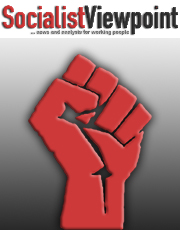Digital Democracy Manifesto
Universal service network
We will deliver high-speed broadband and mobile connectivity for every household, company and organization in Britain from the inner city neighborhoods to the remotest rural community. The National Investment Bank will fund the public sector backbone of this vital infrastructure project, regional banks will support local access cooperatives and Ofcom (Office of Communication)2 will coordinate the private telecoms companies’ contribution to its realization. Because ubiquitous access to digital networks is now a prerequisite of 21st century life and business, we will ensure that high-speed broadband and mobile connectivity is available at the same low price without any data transfer cap across the whole country.
Open knowledge library
We will create a free-to-use on-line hub of learning resources for the National Education Service. The Open Knowledge Library will be the digital repository of lessons, lectures, curricula and student work from Britain’s nurseries, schools, colleges and universities. We will require the findings of all state-funded research to be made available without charge to the general public through this learning portal. In collaboration with the teachers’ unions and the NUS (National Union of Students), the Open Knowledge Library will host virtual meeting places for educational professionals and students to share experiences, disseminate ideas and form collaborations.
Community media freedom
We will ensure that a diversity of views and opinions are heard. The BBC (British Broadcasting Corporation) Charter will be updated with a commitment to nurture programming from local and identity communities. The Office of Communications will protect network neutrality. Funding bodies will be encouraged to sponsor new media arts projects. We will reform the laws on intellectual property so that producers and consumers benefit.
Platform cooperatives
We will foster the cooperative ownership of digital platforms for distributing labor and selling services. The National Investment Bank and regional banks will finance social enterprises whose websites and apps are designed to minimize the costs of connecting producers with consumers in the transport, accommodation, cultural, catering and other important sectors of the British economy. We will introduce new laws guaranteeing a secure employment contract and the inalienable right of trade union membership to everyone who earns most or some of their livelihood from digital platforms. We will apply the best practices and adopt the technological innovations of this cooperative upgrade of the sharing economy to improve the provision, delivery and utilization of public sector services at the local, regional and national levels.
Digital citizen passport
We will develop a voluntary scheme that provides British citizens with a secure and portable identity for their on-line activities. The Digital Citizen Passport will be used when interacting with public services like health, welfare, education and housing. It also can be the network intermediary with commercial providers of tangible or virtual goods. The individual holders of a Digital Citizen Passport will be able to control who has access to their personal data and for what purposes. We will encourage people to share anonymized (make anonymous) information for medical, government and academic research. We will protect the human right of individual privacy with strict laws against the unauthorized hacking of Digital Citizen Passports by either public bodies or private individuals.
Programming for everyone
We will encourage publicly funded software and hardware to be released under an Open Source. Where possible, government agencies will upgrade their computers and networks with these improved versions of democratic programming. The National Education Service will enthuse both children and adults to learn how to write software and to build hardware. Public bodies will financially reward staff technicians who significantly contribute to Open Source projects. We will host official events, which celebrate the achievements of both the professional and hobbyist designers of the networked future.
The people’s charter of digital liberties
We will launch a public consultation with people and parties across the political spectrum to draw up a digital bill of rights. This constitutional settlement will reaffirm the continued importance of long-held and hard-won individual and collective freedoms within the new information society. The human right of personal privacy should give legal protection for British citizens from not only unwarranted snooping on their on-line activities by the security services, but also unjustified surveillance by CCTV (Closed Circuit TV) and other hi-tech methods within the workplace. The people’s charter of digital liberties will be the public statement of the political, civil and socio-economic principles for the networked version of British democracy, including universal access, community media, open learning and cooperative creativity. By enhancing the on-line rights of every individual, we will facilitate the virtual collectivity of all citizens.
Massive multi-person on-line deliberation
We will utilize information technologies to make popular participation in the democratic process easy and inclusive. The holders of a digital citizen passport will be automatically placed on the electoral register of their new constituency as soon as they change their home address. We will aim to organize both online and offline meetings for individuals and communities to deliberate about pressing political issues and participate in devising new legislation. The National Education Service will enlighten the British electorate with the theoretical knowledge and practical skills of digital citizenship. We will create a 21st century networked democracy where everybody can be a political decision-maker.
—The Digital Democracy Manifesto
1 Jeremy Corbyn is the leader of the Labor Party in the UK.
2 Ofcom is the regulator and competition authority for the UK communications industries. It regulates the TV and radio sectors, fixed line telecoms, mobiles, postal services, plus the airwaves over which wireless devices operate.


